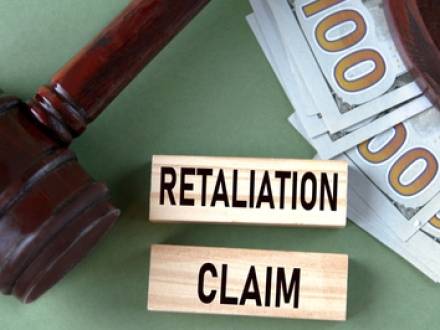Recent Blog Posts
CTDOT Notes Increase in Bicycle Fatalities in the State
Posted on December 12, 2025 in Personal Injury
 The Connecticut Department of Transportation is responding to an alarming increase in bicycle-related fatalities across the state. As of August 2025, there have been six bicyclist fatalities, which exceeds the annual totals for 2021 through 2024, and matches the number of cyclist deaths in 2020. In addition to the six fatalities, there have been 21 serious injuries and 102 minor injuries involving cyclists in 2025.
The Connecticut Department of Transportation is responding to an alarming increase in bicycle-related fatalities across the state. As of August 2025, there have been six bicyclist fatalities, which exceeds the annual totals for 2021 through 2024, and matches the number of cyclist deaths in 2020. In addition to the six fatalities, there have been 21 serious injuries and 102 minor injuries involving cyclists in 2025.
Outreach efforts are ongoing across the state to promote safer streets for bicyclists by encouraging motorists to increase awareness, exercise caution, and respect cyclists’ right to share the road. Cyclists are advised to wear helmets and high-visibility gear and to practice defensive riding. If you are the victim of a bicycle accident caused by the negligence of a motorist, you may have a personal injury claim. An experienced Greenwich, CT bicycle accident attorney can help build a strong case on your behalf.
Continue Reading ››
Protecting CT Employers from Retaliation-Based Attacks
Posted on November 29, 2025 in Business Law
 Connecticut employers face a unique challenge: even when discipline is consistent, well-documented, and appropriate, employees may still file retaliation claims with the Equal Employment Opportunity Commission (EEOC) or the Commission on Human Rights and Opportunities (CHRO). Because Connecticut law vigorously protects employees who make internal complaints or request accommodations, virtually any disciplinary action taken afterward can be portrayed as retaliatory.
Connecticut employers face a unique challenge: even when discipline is consistent, well-documented, and appropriate, employees may still file retaliation claims with the Equal Employment Opportunity Commission (EEOC) or the Commission on Human Rights and Opportunities (CHRO). Because Connecticut law vigorously protects employees who make internal complaints or request accommodations, virtually any disciplinary action taken afterward can be portrayed as retaliatory.
For employers, the key is not only proving that the discipline was warranted, but showing the decision was made for legitimate business reasons, consistent with company policy. It must also be clear that the disciplinary action is independent of any protected activity. An experienced Greenwich, CT employment lawyer can help employers understand how to ensure that disciplinary measures are not retaliatory.
Continue Reading ››
Understanding Catastrophic Injury Claims in New York
Posted on November 14, 2025 in Personal Injury
 While pain is certainly a component of a catastrophic injury, these severe injuries result in more than pain. A catastrophic injury can reshape every single part of your life. Catastrophic injuries can alter your ability to work, live independently, and care for yourself, so they are treated differently from ordinary personal injury claims.
While pain is certainly a component of a catastrophic injury, these severe injuries result in more than pain. A catastrophic injury can reshape every single part of your life. Catastrophic injuries can alter your ability to work, live independently, and care for yourself, so they are treated differently from ordinary personal injury claims.
From lifelong medical care and loss of income to emotional trauma and strain on your loved ones, catastrophic injuries require careful legal handling to ensure full compensation. It is important to understand how New York defines catastrophic injuries and how damages are calculated. A highly experienced Metro New York Area catastrophic injury claims attorney can guide you through the necessary steps to rebuild your life after a tragedy.
What is a Catastrophic Injury Under New York Law?
While there is no single statutory definition of catastrophic injuries, courts and insurers classify these injuries as those that cause permanent or long-term disability, disfigurement, or loss of a vital bodily function. Common examples of catastrophic injuries include paralysis, loss of vision or hearing, severe organ damage, amputations, disfigurement, spinal cord injuries, severe burns, and traumatic brain injuries.
Continue Reading ››
Public Act 25-164: Commercial to Residential Conversions in CT
Posted on October 30, 2025 in Real Estate
 Significant new commercial real estate regulations in Connecticut focus on distressed properties, conversions from commercial to residential use, and protections related to certain lending practices. Connecticut Public Act No. 25-164 establishes a framework for the conversion of commercial real property into residential use, effective October 1, 2025.
Significant new commercial real estate regulations in Connecticut focus on distressed properties, conversions from commercial to residential use, and protections related to certain lending practices. Connecticut Public Act No. 25-164 establishes a framework for the conversion of commercial real property into residential use, effective October 1, 2025.
The bill defines key terms such as "commercial building," "industrial building," and "residential building" and allows for the conversion of commercial buildings into residential developments, subject to a summary review process. The process requires the building owner to certify that the property has been vacant or had an average occupancy rate of less than 50 percent over the previous year.
Connecticut has long struggled with underutilized commercial buildings, including empty offices, old hotels, and retail spaces, while housing shortages persist. The passage of Public Act 25-164 is meant to change all those things; however, developers, land-use attorneys, property owners, and local governments must understand the eligibility, process, and entitlements under this law. Speaking to an experienced Greenwich, CT real estate lawyer can help ensure you have a thorough understanding of the process.
Continue Reading ››
Self-Driving Car Accidents in New York City: Who’s Liable?
Posted on October 15, 2025 in Business Law
 As self-driving cars increasingly share New York City's crowded streets with human drivers, pedestrians, and cyclists, the question of responsibility in the event of an accident is becoming more complex. From Tesla vehicles in "full self-driving" mode to cars equipped with adaptive cruise control, the city known for dense traffic and constant motion is struggling to determine who is responsible for these auto accidents.
As self-driving cars increasingly share New York City's crowded streets with human drivers, pedestrians, and cyclists, the question of responsibility in the event of an accident is becoming more complex. From Tesla vehicles in "full self-driving" mode to cars equipped with adaptive cruise control, the city known for dense traffic and constant motion is struggling to determine who is responsible for these auto accidents.
Determining liability in a self-driving car accident requires a deeper dive into evolving federal safety standards, state negligence laws, and cutting-edge technology. Questions regarding software error, driver negligence, and product liability can collide following an accident with a self-driving car.
If you are a victim injured in one of these accidents, an experienced Metro New York car accident attorney can help you understand how New York law (which is still built around human conduct) applies in a world that is increasingly filled with machine-made decisions. Your personal injury lawyer understands the law and will fight for full recovery on your behalf.
Continue Reading ››
Wage Theft Enforcement: What Connecticut Employers Need to Know
Posted on September 28, 2025 in Business Law
 Far from just a buzzword, wage theft has become a major enforcement priority in Connecticut. The Department of Labor and state regulators are stepping up audits, investigations, and penalties against employers who fail to comply with wage and hour laws – even when those violations are not intentional. The focus is primarily on misclassifying workers as independent contractors, failing to correctly pay employees overtime, and overlooking mandatory meal breaks, although other issues also exist.
Far from just a buzzword, wage theft has become a major enforcement priority in Connecticut. The Department of Labor and state regulators are stepping up audits, investigations, and penalties against employers who fail to comply with wage and hour laws – even when those violations are not intentional. The focus is primarily on misclassifying workers as independent contractors, failing to correctly pay employees overtime, and overlooking mandatory meal breaks, although other issues also exist.
Employers should never view these issues as afterthoughts, as the result could be fines and double damages, not to mention reputational harm that affects employee retention and recruitment. Implementing proactive policies is essential for all Connecticut employers. The best way to achieve this goal is by consulting a skilled Greenwich, CT employment law attorney.
Continue Reading ››
How Broken OSHA Rules Change NY Construction Accident Claims
Posted on September 12, 2025 in Personal Injury
 The construction industry has the most fatal injuries and accidents, with more than 20 percent of all workplace fatalities occurring in construction. In 2023, construction accounted for about 1,075 construction deaths, and this trend has remained steady. The majority of fatalities in the construction industry are due to falls, slips, and trips (often from a ladder, a roof, or scaffolding), caught in-betweens, and electrocutions.
The construction industry has the most fatal injuries and accidents, with more than 20 percent of all workplace fatalities occurring in construction. In 2023, construction accounted for about 1,075 construction deaths, and this trend has remained steady. The majority of fatalities in the construction industry are due to falls, slips, and trips (often from a ladder, a roof, or scaffolding), caught in-betweens, and electrocutions.
The Occupational Safety and Health Administration (OSHA) is a federal agency under the U.S. Department of Labor that sets and enforces standards to ensure workers have safe working conditions. OSHA’s mission is to prevent workplace injuries, illnesses, and deaths by enforcing regulations and conducting workplace inspections.
If you or a loved one has been involved in a serious construction accident, it is in your best interests to speak to a knowledgeable Metro New York personal injury lawyer. Your lawyer will determine whether your workplace had OSHA violations and whether these violations contributed to your accident.
Continue Reading ››
What to Know About Fractional Franchises in Connecticut
Posted on August 26, 2025 in Business Law
 Fractional franchising is becoming increasingly common in Connecticut and across the United States. A fractional franchise is a type of franchise arrangement where an existing business or person operates a franchise for a small portion of their total business. Fractional franchises tend to be part-time endeavors, or an add-on to an existing operation rather than a primary source of income.
Fractional franchising is becoming increasingly common in Connecticut and across the United States. A fractional franchise is a type of franchise arrangement where an existing business or person operates a franchise for a small portion of their total business. Fractional franchises tend to be part-time endeavors, or an add-on to an existing operation rather than a primary source of income.
The business model of a fractional franchise allows the franchisee to add products or services from a franchisor to their established business. One of the things that makes fractional franchises so attractive is that they are often exempt from federal and state franchise registration requirements.
This is because the franchise sales are not expected to exceed 20 percent of the total sales, and the franchisee has prior experience in a similar business (2+ years of experience in Connecticut). If you are considering a fractional franchise, it can be extremely beneficial to speak to a Greenwich, CT business law attorney with experience in franchising.
Continue Reading ››
Who is Liable When an E-Scooter Strikes a Pedestrian?
Posted on August 08, 2025 in Personal Injury
 Whether you live in the New York City area or are a resident of Greenwich, CT, you have likely witnessed the increase in e-scooters and e-bikes. From the bustling streets of New York to the quieter upstate communities, these modes of transportation offer a quick and affordable way to get around. They can also pose hazards, particularly to pedestrians. When a person on an electric scooter or bicycle collides with a pedestrian, the injuries can be severe – and the legalities can be complex.
Whether you live in the New York City area or are a resident of Greenwich, CT, you have likely witnessed the increase in e-scooters and e-bikes. From the bustling streets of New York to the quieter upstate communities, these modes of transportation offer a quick and affordable way to get around. They can also pose hazards, particularly to pedestrians. When a person on an electric scooter or bicycle collides with a pedestrian, the injuries can be severe – and the legalities can be complex.
Is the rider personally responsible? Can the scooter company be sued? What role does the city play in these accidents? If you are a pedestrian injured by a person on an electric scooter or bike, talking to an experienced Metro New York Area personal injury attorney can be the best step you can take to protect your rights and your future.
The Evolution of E-Scooters and E-Bikes in New York
In 2020, the state of New York legalized electric scooters and electric bikes. The New York City Department of Transportation (DOT) has implemented a Shared E-Scooter Program in several outer boroughs, excluding Manhattan. The East Bronx was the first area to launch a shared e-scooter pilot program, and now it has e-scooters from Bird, Lime, and Veo throughout the region.
Continue Reading ››
Toxic or Terminated? How to Legally Fire a Problem Employee
Posted on July 24, 2025 in Business Law
 Firing an employee - even one who fails to perform or is clearly toxic - requires considerably more than a pink slip. New York is an at-will employment state, but this does not mean that employers can escape lawsuits for wrongful termination. In particular, if the employee recently filed a complaint or falls within a protected category, a mishandled termination can lead to costly litigation.
Firing an employee - even one who fails to perform or is clearly toxic - requires considerably more than a pink slip. New York is an at-will employment state, but this does not mean that employers can escape lawsuits for wrongful termination. In particular, if the employee recently filed a complaint or falls within a protected category, a mishandled termination can lead to costly litigation.
When dealing with a disruptive or underperforming employee, there are effective and legal ways to protect your company while parting ways. If your company is dealing with a problematic employee, your first step should be to consult an experienced New York Metro Area employment lawyer to ensure everything is handled legally.
What Does "At-Will Employment" Mean?
Every state in the United States, except Montana (including Washington, D.C.), operates under at-will employment laws. This means that employers can terminate an employee’s employment at any time, for any reason, or no reason at all, as long as the reason does not include one of the following:
Continue Reading ››


 The
The Connecticut employers face a unique challenge: even when discipline is consistent, well-documented, and appropriate, employees may still file
Connecticut employers face a unique challenge: even when discipline is consistent, well-documented, and appropriate, employees may still file While pain is certainly a component of a catastrophic injury, these severe injuries result in more than pain. A
While pain is certainly a component of a catastrophic injury, these severe injuries result in more than pain. A Significant new
Significant new As self-driving cars increasingly share New York City's crowded streets with human drivers, pedestrians, and cyclists, the question of responsibility in the event of an accident is becoming more complex. From Tesla vehicles in "full self-driving" mode to cars equipped with adaptive cruise control, the city known for dense traffic and constant motion is struggling to determine who is responsible for these
As self-driving cars increasingly share New York City's crowded streets with human drivers, pedestrians, and cyclists, the question of responsibility in the event of an accident is becoming more complex. From Tesla vehicles in "full self-driving" mode to cars equipped with adaptive cruise control, the city known for dense traffic and constant motion is struggling to determine who is responsible for these Far from just a buzzword, wage theft has become a major enforcement priority in Connecticut. The
Far from just a buzzword, wage theft has become a major enforcement priority in Connecticut. The The construction industry has the most fatal injuries and accidents, with more than
The construction industry has the most fatal injuries and accidents, with more than Fractional franchising is becoming increasingly common in Connecticut and across the United States. A fractional
Fractional franchising is becoming increasingly common in Connecticut and across the United States. A fractional Whether you live in the New York City area or are a resident of Greenwich, CT, you have likely witnessed the increase in e-scooters and e-bikes. From the bustling streets of New York to the quieter upstate communities, these modes of transportation offer a quick and affordable way to get around. They can also pose hazards, particularly to pedestrians. When a person on an electric scooter or bicycle collides with a pedestrian, the injuries can be severe – and the legalities can be complex.
Whether you live in the New York City area or are a resident of Greenwich, CT, you have likely witnessed the increase in e-scooters and e-bikes. From the bustling streets of New York to the quieter upstate communities, these modes of transportation offer a quick and affordable way to get around. They can also pose hazards, particularly to pedestrians. When a person on an electric scooter or bicycle collides with a pedestrian, the injuries can be severe – and the legalities can be complex. Firing an employee - even one who fails to perform or is clearly toxic - requires considerably more than a pink slip. New York is an
Firing an employee - even one who fails to perform or is clearly toxic - requires considerably more than a pink slip. New York is an






